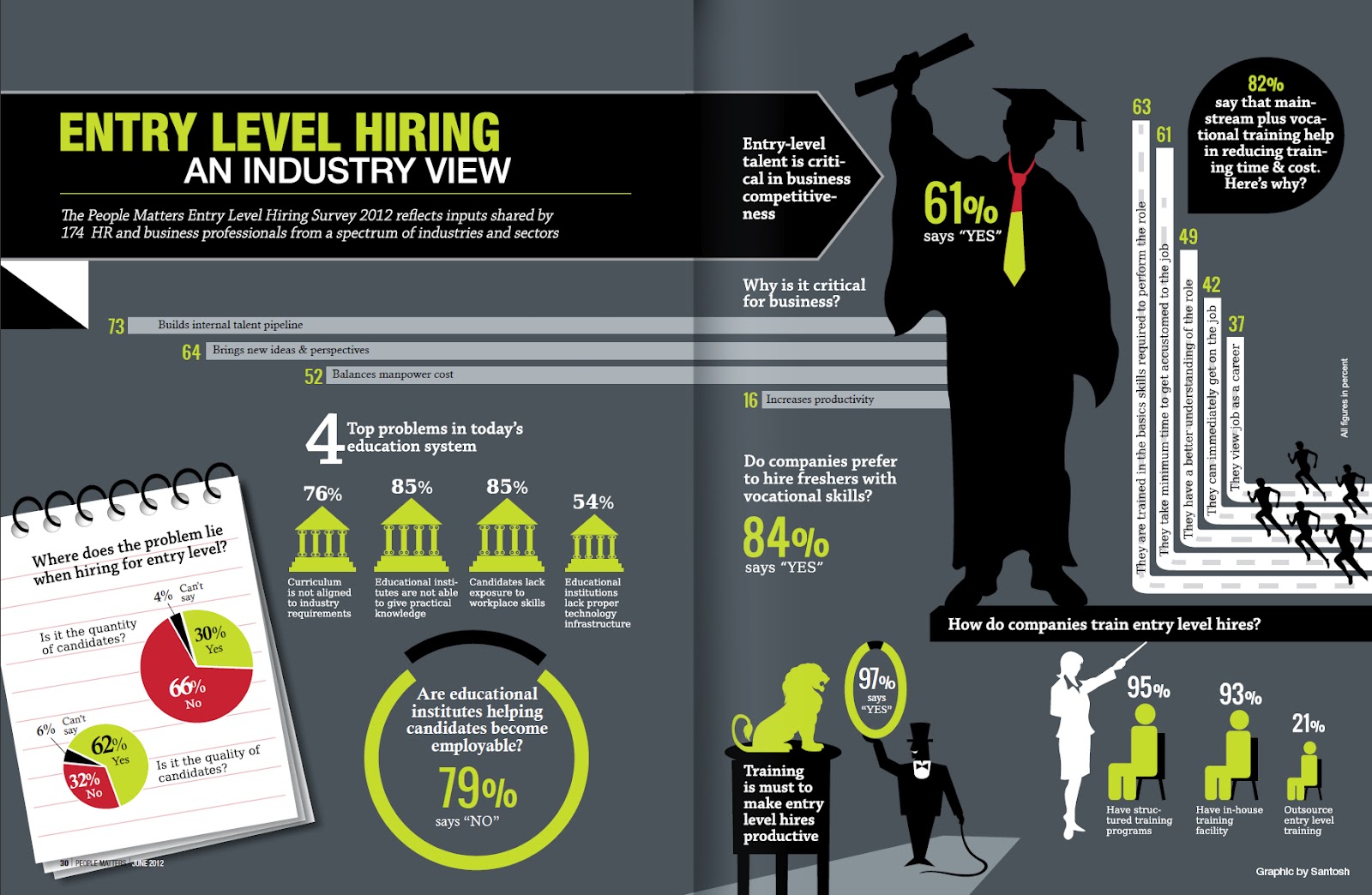Commencements have commenced, and vast numbers of recent grads are now on the hunt for their first job as degree holders. Of course, not all entry level positions require a college degree, but many of them do. Either way, entry level hiring can be tricky due to a dearth of concrete work experience. What is your entry level hiring strategy? Check out this infographic from Santosh Kumar (full size below) with some interesting facts and figures on the subject.
First of all, this infographic tackles an important question: why is entry level hiring so important for your business? Why not just wait for these recent grads to age five years, and then hire them? Although savings on salary is often touted as an advantage of hiring recent grads (we haven’t learned yet that Ramen noodles aren’t real food!), a People Matters survey ranked cost as only the 3rd most important reason to hire recent grads. 73% of 174 HR and business professionals surveyed said that entry level hiring is critical because it “Builds an internal talent pipeline.” 63% cited “new ideas and perspectives” as a valuable asset. Only 16% listed productivity as a critical advantage of recent grads: Is this justified?
In addition to that 16% figure, the infographic does point out a few other negative aspects to the entry level hiring atmosphere. The pie-charts in the lower left show that the surveyed HR professionals are more concerned about the quality of candidates, as opposed to the quantity of candidates. While it would be hard to argue that quantity is a problem in the current job market, the assertion that quality is an issue is a little troubling.
The Top 4 Problems in Today’s Education System puts a finer point on the situation. A vast majority of professionals agree that colleges/universities struggle to: provide practical knowledge, expose students to workplace skills, and adjust curriculum to industry standards.
In fact, when it comes to entry level hiring, HR professionals also agree that educational and vocational experience is greatly preferred. Recent grads and other entry level hires who have vocational training generally understand their new position and basic tasks more quickly, and take less overall time to train. It seems that many professionals feel that vocational training helps entry level workers gain the skills that colleges/universities sometimes fail to provide.
However, they can be taught! Although entry level hires with vocational skills are often preferred, businesses still take the training of entry level employees very seriously. 97% say that training is a MUST to make entry level hires productive (or any new employee productive, I would say). Check out the lion tamer graphic. The vast majority of surveyed professionals also conduct said training in-house and in structured programs.
This infographic has a lot of information, positive and negative, about the prospect of hiring recent grads and other entry levels. What do you think? Are the stated problems with recent grads real problems? What experiences have you had? Spark a conversation below.







